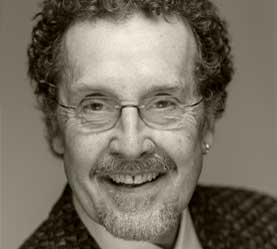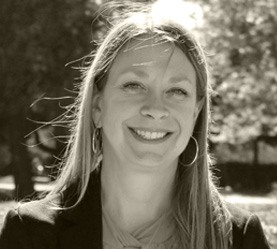Open the Door to New Possibilities
Cal State East Bay’s Online Single Subject Teaching Credential program is especially designed for those who currently hold a bachelor’s degree and want to become middle and high school teachers.
Throughout the program, you’ll learn the necessary pedagogical skills to effectively teach adolescents, acquire an understanding of adolescent learner psychology, develop proper attitudes towards teaching, and become a self-confident educator.
Best in the West
Selected as a "Best in the West" college by The Princeton Review
Faculty Excellence
Taught by educational leaders in CSUEB’s Department of Teacher Education
One-of-a-Kind Training
Achieve the single subject teaching credential in a completely online format
Unique Training that Puts You on the Fast Track to Success
With a flexible learning format, the Online Single Subject Credential can be achieved in just one year and authorizes teaching specified subjects required for almost all high school and middle school teaching positions.
Make a Positive Impact on the Next Generation
The teaching profession is one of the most noble and fulfilling professions that you can pursue, and there is always a need for good teachers who can help their students compete in this ever-changing world. As a middle or high school teacher, you can look forward to making a positive difference in the lives of your learners.
Occupational Outlook
$101K+ Salary
The annual median salary of secondary school teachers is $101,445 in California and $65,210 nationally.
—Labor Market Analytics – Lightcast
New Jobs
California is the second highest state for employment levels in secondary school teachers with over 95,000 jobs in 2025.
—Labor Market Analytics – Lightcast
Job Growth
64,000 job openings for high school teachers are projected each year, on average, over the next decade.
—U.S. Bureau of Labor Statistics
Expand Your Professional Reach
Equipped with your Single Subject Teaching Credential, you’ll be able to combine your academic skills and teacher training to take appropriate steps for your learners' optimum development and impart the necessary knowledge of your subject matter. You can look forward to joining the list of successful graduates who are making a positive difference in the lives of their students.
Successful program completers are qualified for a Single Subject Teaching Credential that qualifies them to teach at the middle and high school level (Grades 6-12); some subject areas span Grades K-12. Candidates in the SSOC can choose one of the following subject areas for their credential: Art, Dance, English, Music, Physical Education, Social Science (History), World Languages (languages other than English; credentials available for any language for which there is a CSET), or Theater.
Note: Science and math credentials are only offered on campus, and are not a part of the Online Single Subject Teaching Credential program. If interested in a Single Subject Math or Science Teaching Credential, please follow this link for information about the On-Campus Single Subject Credential Program and application details.
CSUEB's online single subject credential program is the first of its kind and was a perfect fit for me while I continued to work in the classroom. I'm so grateful I got to be a part of the pilot program that launched my career in public school, allowing me to intern and interview for more opportunities that doubled my salary.
Program Format
This program begins each year in the summer, and candidates complete their credential the following spring. It is delivered in a completely online format with both synchronous and asynchronous classes.
Credential Requirements
To earn your credential, you must complete the following courses. Please note, the actual course schedule is sent to admitted students annually prior to beginning the first semester.
Sample Schedule of Required Courses
| First Semester (Summer) – 13 units |
|---|
| TED 521 Content Literacy (4 units) |
| TED 520 Foundations of Single Subject Education (4 units) |
| TED 522 Introduction to Teaching Emergent Bilinguals (1 unit) |
| TED 525 Introduction to Teaching Special Ed Students in Single Subject Classroom (1 unit) |
| TED 530-568 Methods 1 (3 units) |
| Second Semester (Fall) – 14 units |
|---|
| TED 523 Inclusive Practices in a Single Subject Classroom A (3 units) |
| TED 528 Technology in the Single Subject Classroom (2 units) |
| TED 575 Single Subject Fieldwork Seminar A (1 unit) |
| TED 585 Single Subject Field Placement A (5 units) |
| TED 530-568 Methods 2 (3 units) |
| Third Semester (Spring) – 15 units |
|---|
| TED 524 Inclusive Practices in a Single Subject Classroom B (3 units) |
| TED 529 Professional Responsibilities (3 units) |
| TED 530-568 Methods 3 (3 units) |
| TED 576 Single Subject Fieldwork Seminar B (1 unit) |
| TED 586 Single Subject Field Placement B (5 units) |
Who will you be learning from? Meet your professors. »
Featured Faculty
The online campus at Cal State East Bay is well known for its quality and approach to student service. The Department of Teacher Education faculty teaching in the online program are committed to preparing effective teachers and other educational professionals for California's diverse schools. The faculty have years of recognized expertise and are active in the professional discipline of Teacher Education. They are supplemented by a select group of lecturers and university supervisors drawn from respected universities and public schools from within the Bay Area and beyond.
Additional Faculty:
Tonja Byrom, Fieldwork and Intern Coordinator
Talya Kemper, Associate Professor
Kelly Moore, Program Coordinator
Shadi Roshandel, Department Chair
Lyn Scott, Associate Professor
Next, learn all about admission requirements and how to apply. »
Admission Requirements
The online program is designed for candidates with bachelor's degrees. You must have a cumulative GPA of 2.67 or a 2.75 GPA in your last 60 units to be admitted and be in good academic standing.
Admission Deadlines
Application dates are subject to change
| Semester | Application Filing Period | Transcripts & Other Documents Due |
|---|---|---|
| Summer 2026 | TBD | TBD |
Still have some unanswered questions? Visit the support center for further assistance. »
At Cal State East Bay, we pride ourselves on putting students first, from the moment you inquire until you graduate. We hope you've found answers to your questions in this support center, but if not, please get in touch.



